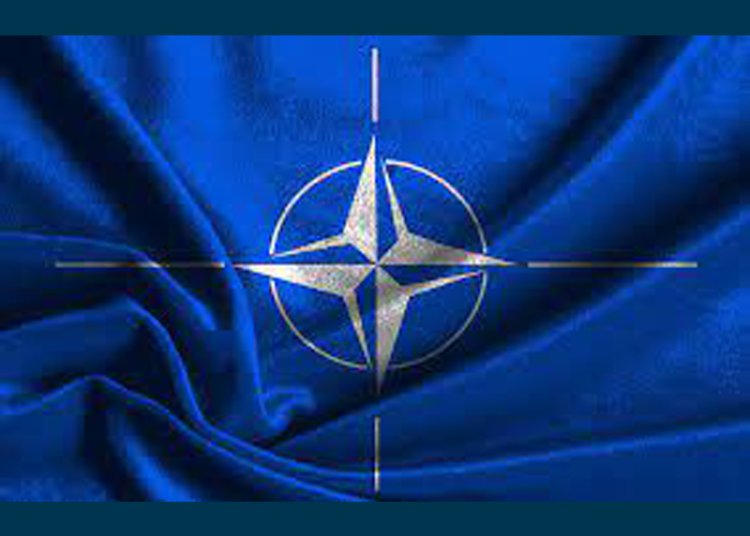What is NATO and what does it stand for?
Understand NATO, its role, objectives, and significance in global politics. Unpack the acronym and delve into this impactful alliance. Visit now for insights.

What is NATO and what does it stand for?
NATO stands for North Atlantic Treaty Organization or NATO is an international military organization founded after World War II. Twelve North American and European nations signed the North Atlantic Treaty in Washington D.C. on April 4, 1949. NATO promotes security, defense, and collaboration among its members. Brussels hosts NATO headquarters.
Stability, peaceful conflict resolution and international collaboration are NATO's priorities to protect its members. It seeks to balance power, prevent wars, and maintain peace in the North Atlantic. The UN Charter and democracy, human rights, and the rule of law underpin NATO.
NATO's main goal is to establish a collective defense organization to defend member nations. Hence, a member's assault is a member's attack. NATO has helped its members during natural calamities. It also conducts peacekeeping in the Balkans, Afghanistan, and Iraq. NATO aims to make the world safer through its worldwide presence and relationships.
NATO's Evolution
NATO is a North American-European military and political alliance. Twelve founding members founded the group in Washington DC on April 4, 1949, to stop Soviet military expansion in Europe. Since then, it has evolved to become one of the world's most important military alliances with 30 member nations, including some of the world's most powerful economies including the US, Canada, Germany, France, and the UK.
NATO was founded after World War II when communism was considered the greatest danger to democracy. After World War II, Europe was divided, creating the Soviet Union, which created an explosive climate and necessitated a new security architecture. Political and military cooperation among members protects their independence and security. NATO's major goal is to discourage attacks on protected nations. It also promotes democracy, freedom, and the rule of law among its friends.
NATO has evolved extensively. Once the Soviet Union collapsed, eastern and central Europe joined. It helps resolve crises in the Balkans, Mediterranean, and Afghanistan. The North Atlantic Treaty has improved its powers and effectiveness by adapting to new threats including cyber defense and terrorism. NATO's worldwide reach is also shown by its recent agreements with Japan and South Korea. Of its history, progress, and attempts to maintain global peace, NATO remains a key factor in international security.
NATO's Purpose
North America and Europe form NATO, a military alliance. It was founded in 1949 to defend against Soviet assault. Now, NATO's mandate is far broader.
NATO's main duty is Euro-Atlantic security. NATO uses military operations, alliances, and coordination on cyber defense, energy security, and terrorism to achieve this. NATO also manages crises and prevents wars through peacekeeping operations.
NATO's objectives and role depend on member countries' commitment. Each member contributes according to their size and skills, and all are expected to work together to secure the alliance. NATO members participate in all decision-making and shape the organization's policies and actions. NATO's teamwork and unity make it a global peace and security forces.
NATO Structure
NATO, a European-American security alliance, was founded in 1949. The group defends member states against attack. Since its founding, the organization has expanded to 30 member states, making it one of the most prominent and powerful international organizations.
NATO membership is crucial. NATO membership requires democratic principles, peaceful conflict resolution, and effective defense. The organization's governing bodies will assess applications and invite countries to join. The applicant country must undertake considerable adjustments to its defense and political systems, making the accession process lengthy and difficult.
NATO's structure promotes collaboration and a coordinated response to external threats. The secretary-general manages and speaks for the organization. The North Atlantic Council makes decisions and the military committee advises it on military matters. NATO's joint headquarters and operational commands handle certain regions and operations.
NATO's membership and structure support collective defense among member nations. NATO protects its members and the world by imposing tough membership requirements and maintaining a sophisticated administrative and military organization. Policymakers and military leaders will focus on membership and structure as the organization adapts to new security threats.
NATO Problems and Prospects
NATO was created in Washington D.C. on April 4, 1949. It was a Cold War mutual defense pact against the USSR. Since its founding, the group has grown to over 30 nations with others interested in joining. Nowadays, NATO promotes collective defense, security, and dialogue. Its peacekeeping and collaboration initiatives have moved outside the North Atlantic area.
Notwithstanding its triumphs, NATO must overcome some contemporary obstacles to continue performing its duty. NATO's biggest challenge is global security. Many members feel they must be more reactive, responsive, and flexible to address the many non-traditional and unforeseen security issues. Globalization and digitalization pose new and complex security threats that require new alliances and engagement for NATO. This, along with developing nationalistic or isolationist impulses among some members, shows that NATO faces internal and foreign challenges that must be addressed and modified.
NATO has some promising potential despite its current global issues. Technological innovation helps it handle changing security risks. This innovation involves drones, AI, and cyber protection. NATO might also work with non-members to better address global security threats. To unify global defense, the alliance is collaborating with other international institutions including the European Union. NATO is committed to global stability and security despite these obstacles.
Joining NATO
Global politics revolves around NATO membership. The North Atlantic Treaty Organization (NATO) promotes peace and security among its member states. The US, Canada, and most European countries are among its 30 members. NATO membership is a long and complicated procedure with many criteria and prerequisites.
NATO membership involves political, economic, and military conditions. The nation must be the democratic, rule of law, and have a free market. The nation should also support peaceful conflict settlement and regional stability. A strong military sector requires a healthy market economy. Finally, the military requirement requires a modern military that can support NATO's defense.
A membership application, political consultations, and an invitation are also required. NATO's political leadership and specialists evaluate a nation's application to join once it applies. Political conversations with the applicant nation discuss its compliance with NATO's principles and ideals. If the member states agree, the nation is officially invited to join the alliance. The nation joins NATO after signing the accession protocol and satisfying other prerequisites.
In conclusion, NATO membership requires several steps and requirements. An official membership application, political consultations, and a membership invitation follow meeting political, economic, and military requirements. NATO membership promotes peace, security, and collective defense against threats.
NATO's Members
NATO membership affects global security. NATO promotes peace and stability among its member nations via collective defense and collaboration. NATO's 30 European and North American members share its ideals, programs, and principles. These nations cooperate to protect their people and the world.
NATO includes the US, Canada, Iceland, and Luxembourg. The UK, France, and Germany influence NATO's military and political decisions. Montenegro and North Macedonia joined in 2017 and 2020, respectively, and the alliance has developed gradually. NATO may enhance its role in European security with each new member.
NATO membership has real rewards and obligations. Funding, manpower, and military equipment are required from alliance members. They can join NATO's intelligence-sharing network and military exercises. The alliance's diplomatic and political might also advance these governments' global interests. NATO membership needs a strong commitment to the organization's aims and ideals.
NATO Advantages
NATO participation benefits any nation's foreign strategy. National security and regional stability are enhanced by NATO membership. Collective defense is a major benefit of NATO membership. Under NATO, an attack on one member state is an attack on all. This implies each member must work together to defend a fellow member. This security guarantee safeguards member states and deters aggressors.
NATO membership boosts diplomatic power. NATO's unified voice in international venues gives member nations a platform to promote their foreign policy aims. NATO membership allows for coordinated military exercises, information sharing, and other partnerships. Such initiatives can build confidence and collaboration between member states, enhancing national security.
Ultimately, NATO membership may boost economies. NATO nations have easier access to markets, investors, and the economic resources of other NATO members, which boosts their economies. NATO participation may boost international investment and commercial prospects, boosting economic growth. Member nations may use the alliance's resources and experience to generate new economic possibilities for everybody by cooperating.
NATO membership provides security, diplomacy, and economic opportunity. Each member state can participate in sovereignty and interest-related decisions through the alliance. Each country's foreign policy relies on NATO membership.
Joining NATO
The 1949-founded North Atlantic Treaty Organization (NATO) is a military alliance comprising North American and European nations. In recent years, its mandate has grown to encompass crisis management and peacekeeping. NATO membership requires political, military, and economic stability.
Expressing interest in joining NATO is the first stage. This usually entails applying and communicating with NATO officials to see if the applicant nation is ready to join. NATO will assess the nation's political stability, commitment to democracy and human rights, and ability to meet NATO's military capabilities and budget criteria.
If an application is accepted, the prospective member must complete a formal accession procedure that entails substantial discussion and collaboration with existing members. Submitting extensive reports on military capabilities and budget, agreeing to NATO's strategic and operational objectives, and partnering with existing members might take years. To join the alliance, the prospective member must improve human rights, democratic institutions, and civil society.
In conclusion, joining NATO requires political, military, and economic considerations. Prospective members must achieve NATO's high military preparedness criteria, subscribe to democratic ideals, and engage with existing members to develop a solid alliance. Joining NATO can improve security and ties with other members, but it can be difficult.
NATO Operations Overview
The 1949-founded military bloc NATO With collective defense and a powerful deterrent promotes North Atlantic peace and security. NATO has 30 European and North American countries that pledge to protect each other if attacked.
NATO missions worldwide aim to achieve these goals. Bosnia & Herzegovina, Kosovo, and Afghanistan have seen major NATO operations. These actions help regional peace and stability. NATO's non-military operations include political and diplomatic endeavors.
NATO's diverse actions reflect modern security issues. NATO's engagement in refugee, terrorist, and maritime security crises shows its problems transcend beyond military operations. NATO collaborates with non-NATO nations to promote security and stability. These alliances promote democracy, human rights, and the rule of law in conflict zones. NATO activities and missions promote stability, avert war, and safeguard its member nations and their citizens.
NATO Missions
Since its founding, NATO has participated in many missions and operations. The 1990s Yugoslav Wars saw its first intervention in Bosnia and Herzegovina. NATO bombed Bosnian Serb sites in a no-fly zone. Its most successful operation lasted three years.
NATO's 2003 ISAF deployment in Afghanistan was another important mission. ISAF trained, supported, and secured Afghanistan. NATO's longest operation, involving soldiers from over 50 nations, lasted over a decade. Although initially successful, the Taliban insurgency persisted, and the operation ended in 2014.
NATO participated in the 2011 Libyan military operation to defend the people from Gaddafi. Air attacks on Libyan government targets brought down Gaddafi's dictatorship. The intervention was condemned for its lack of long-term preparation, and the nation was unstable after its collapse.
NATO's missions and operations have had mixed results, but they have proved their commitment to global peace and security. Each mission's problems and learning have shaped NATO's future missions. They show the necessity of international collaboration in tackling global security challenges.
Active NATO Missions
NATO is a political and military alliance comprising 30 North American and European nations. NATO's main goal since 1949 has been to protect its members' independence and security. The organization's vast variety of missions and actions to attain this aim has proven crucial. NATO has several ongoing activities and missions to promote stability, security, and peace worldwide.
NATO's Resolute Support Operation in Afghanistan continues. Since 2015, the mission has trained, advised, and assisted Afghanistan security personnel to improve security and prevent terrorist attacks. The operation has improved Afghanistan's security forces, but insecurity, corruption, and political instability remain.
EFP in Eastern Europe is another crucial NATO operation. Russia's hostility towards its neighbors prompted EFP's 2016 founding. NATO troops, equipment, and infrastructure are deployed in Poland and the Baltics. The EFP aims to strengthen NATO's deterrence and defense against Russian threats and show NATO's cohesion.
NATO's present activities demonstrate its dedication to global peace and security. The operations vary from training local security forces to sending NATO soldiers to war zones. NATO continues to work with its partners to achieve its goals despite the dangers and obstacles.
Global NATO Role
Today, NATO remains crucial. Its collective defense doctrine stands noteworthy. NATO shares resources and information to safeguard its members. Article 5, which states that an assault on one NATO member is an attack on all, strengthens regional security. NATO offers safety and political interaction; therefore, countries join.
NATO's military actions have made it a worldwide power. In the mid-2010s, NATO sent over 120,000 troops to Afghanistan to provide security and democracy. During the Arab Spring, the group led a coalition to establish a no-fly zone over Libya. The alliance has maintained calm in several hotspots and intervened in the Balkans. These missions reflect NATO's global influence.
NATO's humanitarian efforts have risen as well. Members establish quick-response solutions for global humanitarian disasters like the coronavirus epidemic. Military troops also participate in security and stability projects in Kosovo, which the organization has protected since 1999. NATO promotes regional stability and peace outside battle zones. NATO is one of the most important organizations in the world, with its impact extending beyond its member countries.
NATO Actions and Geopolitics
NATO's missions have shaped global geopolitics. The North Atlantic Treaty Organization was founded in 1949 to deter Soviet attacks against Western Europe. NATO now handles crisis management, peacekeeping, and humanitarian relief in addition to the military.
NATO's 1990s operation in Yugoslavia changed its geopolitical significance. The 1995 NATO operation ended the Bosnian War, ending the mass slaughter that had led to genocide, and formed peacekeeping forces. NATO's ability to project influence abroad affected the region's geopolitical equilibrium.
After 9/11, NATO started an intervention in Afghanistan. This operation was the only occasion NATO used Article 5, which declares that an attack on one ally constitutes an attack on all. NATO forces fought the Taliban and Al-Qaeda in Afghanistan, the longest U.S. conflict. The divided Afghanistan mission has had a major influence on global geopolitics, including the emergence of terrorist organizations and regional instability.
NATO's missions have shaped global politics. NATO has shown its worldwide might via crisis management and peacekeeping, with substantial geopolitical effects. NATO's military dominance will continue to affect world politics.
21st-century NATO introduction
North Atlantic Treaty founded NATO in 1949. After the Second World War, it was established to defend its members from foreign invasion. It has 30 nations today, up from 12. Euro-Atlantic peace and security depend on it.
In the 21st century, NATO stresses political involvement and conversation rather than a military alliance. Its key objectives are Euro-Atlantic security, stability, and democracy. For world peace, the group promotes collective defense, deterrence, and crisis management.
NATO's work to combat terrorism and stop the spread of nuclear weapons has made it a worldwide peacekeeper. The group has participated in peacekeeping and humanitarian aid, notably in crisis zones. NATO has also helped establish security forces worldwide to ensure stability and peace in war zones.
NATO Challenges
In 1949, North American and European nations founded NATO, a military alliance. The group promotes collective security against external dangers. NATO members promise to defend each other. The partnership has faced various obstacles in recent years, threatening its viability.
NATO's biggest issue is global geopolitics. China and Russia's ascent has changed global politics. These developments have created new risks. NATO is under pressure from Russia's aggression. Russia has increasingly used military, cyber, and political strategies in hybrid warfare. NATO nations must guard against Russian cyberattacks.
NATO also confronts political change. Several of its members face political, economic, and social upheaval. Nationalism and populism have divided NATO members, affecting decision-making. The US, a major NATO member, is dissatisfied with other states' military spending. NATO's future is threatened by contemporary politics and member disunity.
The epidemic also affected NATO's future. The COVID-19 pandemic has impacted the global economy and presented new issues for governments. NATO nations face economic downturns. This will cut military resources and weaken NATO. This is bad for a military alliance that deters threats.
In conclusion, multiple problems threaten NATO's future. They include the pandemic's economic impact, altering geopolitics, and political atmosphere. NATO must solve these issues to be relevant and effective. If not, it may collapse.
Future NATO Options
Since 1949, NATO has protected the West from foreign threats. The alliance's significance has been questioned in recent years, and NATO's future has been debated. Maintain, reform, or abolish NATO? In this case, weighing the benefits and downsides is vital.
NATO might continue with its collective defense mandate. This approach is supported by NATO's 70-year record of peace and stability in Europe and its status as the world's strongest military alliance. Sustaining NATO prevents internal tensions, strengthens transatlantic relations, and deters external threats. Yet, terrorism, cyber threats, and hybrid warfare may render NATO obsolete. Maintaining NATO as it requires relying largely on the US for finance, capability, and leadership, which might weaken the alliance's cohesiveness and credibility.
NATO might reform. This alternative adapts NATO's mission and organization to current global problems. Reforming NATO may make it more adaptive, relevant, and responsive to new security concerns. NATO should prioritize stability and global security over member defense. This option proposes that NATO work more with growing countries like China and Russia to handle transnational concerns. Reforming NATO will require political will and might divide its members.
Ultimately, the alternative of disbanding NATO completely has also been advocated by a few speakers. The fundamental justification for this alternative is that NATO's basic objective has been completed, and it has grown increasingly expensive to sustain. Opponents of NATO claim that it is becoming less and less important as the globe faces increasingly complicated concerns such as climate change and global pandemics. Additionally, quitting NATO might yield huge financial savings, which could be channeled toward other more critical causes. Yet, disbanding NATO might potentially have significant effects, including weakening the deterrent against foreign threats, generating tensions among its members, and possibly leading to new hostilities.
In conclusion, the future of NATO is a significant topic, and choices for its future differ depending on the geopolitical, economic, and security situations. The choice of the future of NATO should be based on a complete analysis of the merits and downsides of each alternative. The survival of NATO will ultimately rest on the perception of its relevancy, ability to adapt and change, and solidarity among its members as a security alliance committed to fostering peace and stability.
Possible Advantages and Implications of Various Pathways
The future of NATO is a topic that has been debated for many years, with many scholars arguing for different paths to be taken. On the one hand, some experts believe that NATO should continue along its current path, while others advocate for a radical shift in its approach. In this essay, we will examine the potential benefits and consequences of these different paths, and consider which one is most likely to secure the future of the organization.
One potential path that NATO could take is to continue along its current track, maintaining its current focus on collective defense and deterrence. Advocates of this path argue that NATO has been successful in deterring aggression against its member states and that this deterrence effect will only be maintained if the alliance continues to prioritize military readiness and investment in new technologies. However, the biggest downside of this path is that it could lead to a further arms race with Russia, and could escalate tensions between the two sides. In addition, this path does not address the underlying causes of instability in regions such as the Middle East.
Another potential path that NATO could take is to adopt a more proactive approach to conflict prevention and resolution, rather than simply relying on deterrence. Advocates of this path argue that NATO should focus on addressing the root causes of instability in regions such as the Middle East, by investing in economic development and supporting democratic governance. This approach could help to reduce the likelihood of conflict in the future, and could also help to build long-term stability in the region. However, this path would require a significant investment of resources, both financial and political, and would require NATO to take on a larger role in global governance.
A third potential path for the future of NATO is to shift its focus away from defense and toward collective diplomacy and global governance. Advocates of this path argue that NATO should be seen as a global security umbrella, under which all countries can come together to address common problems such as climate change, cyber security, and terrorism. This approach would require a radical shift in the way NATO is currently structured and would require significant investment in diplomacy and global governance. However, it has the potential to create a new model for global security that is based on cooperation and mutual benefit.
Conclusion: The Importance of NATO in Global Security
The North Atlantic Treaty Organization (NATO) is a military alliance founded in 1949 to provide collective defense for its member countries. The organization was formed in response to Soviet expansionism and the threat of communist aggression in Europe. Today, NATO continues to play a vital role in ensuring global security, particularly in the face of new and emerging threats.
In conclusion, the importance of NATO in global security cannot be overstated. The organization has been instrumental in promoting stability in Europe and beyond. Its commitment to collective defense and cooperation among member nations has helped to deter aggression and maintain peace in the region for over 70 years. NATO's continued relevance is essential in addressing new security challenges, including cyber warfare, terrorism, and the proliferation of weapons of mass destruction.
Furthermore, NATO has also played a critical role in promoting democracy, human rights, and the rule of law. The organization has helped to support emerging democracies and transition states, particularly in the Balkans and Eastern Europe. NATO's partnership with the European Union has further strengthened the organization's ability to respond to political and security challenges. NATO's continued involvement in these areas is crucial in maintaining peace and stability in the region and promoting broader Western values.
In conclusion, NATO remains one of the most important international organizations for global security. Its continued relevance in addressing new and emerging threats, coupled with its commitment to promoting democracy and human rights, makes NATO a vital partner in maintaining peace and stability in the world. As we look to the future, it is clear that NATO will continue to play a vital role in ensuring the safety and security of its member nations and promoting Western democratic values.
We hope this article may have helped you understand the forex market and trading. It is important that in this era of uncertainty, we all need a side hustle and income. Trading Forex is the best that it is. Please don't ever think of trading as gambling. Everyone can sing, but only a few can SING. It is a calling. For all those who want to make money in Forex trading without doing the deed of strenuous trading - CLICK HERE.
Happy Trading
To read more interesting articles CLICK HERE
Why do you need to be with TradeFxP? CLICK HERE
To join our Hunter AutoBot Trading Program CLICK HERE
All About TradeFxP's Hunter Ai EA Autobot CLICK HERE



 admin
admin 










